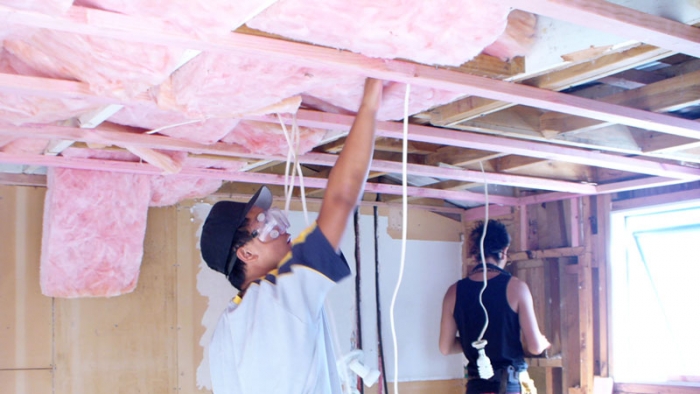Older homes were not built with energy efficiency in mind; while homes older than 15 years will of course have some insulation, they are usually not up to modern standards. One of the biggest areas where homes tend to have insufficient insulation is the attic. No matter how efficient your air conditioner is and how well-sealed your doors and windows are, if heat is seeping into your house due to poor attic insulation, you will still face high energy bills, as well as potentially inconsistent and uncomfortable temperatures.
The attic is one of the biggest potential areas from which heat can flow into your house during warm weather if it is improperly insulated. Heat rises, which is a problem with attics in both the summer and the winter:
- You want the heat to stay in the house itself during the winter.
- Accumulation of heat in the attic in the summer means that the air conditioning has to work harder to cool your house unless the heat is kept there.
- The attic's heat can radiate from your ceiling into your home, raising temperatures.
How to Choose Insulation
When considering how to keep your home cool during warm weather, the biggest factor in how well insulation works is the R-Value, or thermal resistance. This is the extent to which the insulation prevents the flow of heat. Insulation works by creating dead air where little heat exchange occurs; in addition, there are some forms of reflective insulation.
Most modern building codes require insulation to have an R-Value of at least 30 in new homes; however, the highest R-Value available is R-38. R-38 insulation could cool homes by as much as an additional 5-8 degrees. This is often a worthwhile investment, as the savings in energy can pay for the additional material costs eventually. Better insulation also adds value to the house.
In an attic, blown insulation may be a better choice than rolled insulation, because it can fit in smaller spaces and cover larger areas. Fiberglass insulation is often a great choice for the type of material used; not only does it insulate your home, but it also prevents the growth of mold and mildew. Whatever insulation you decide to invest in, it can be installed over your home's existing insulation, preventing you from needing to pay to have the insulation removed and new insulation added.

